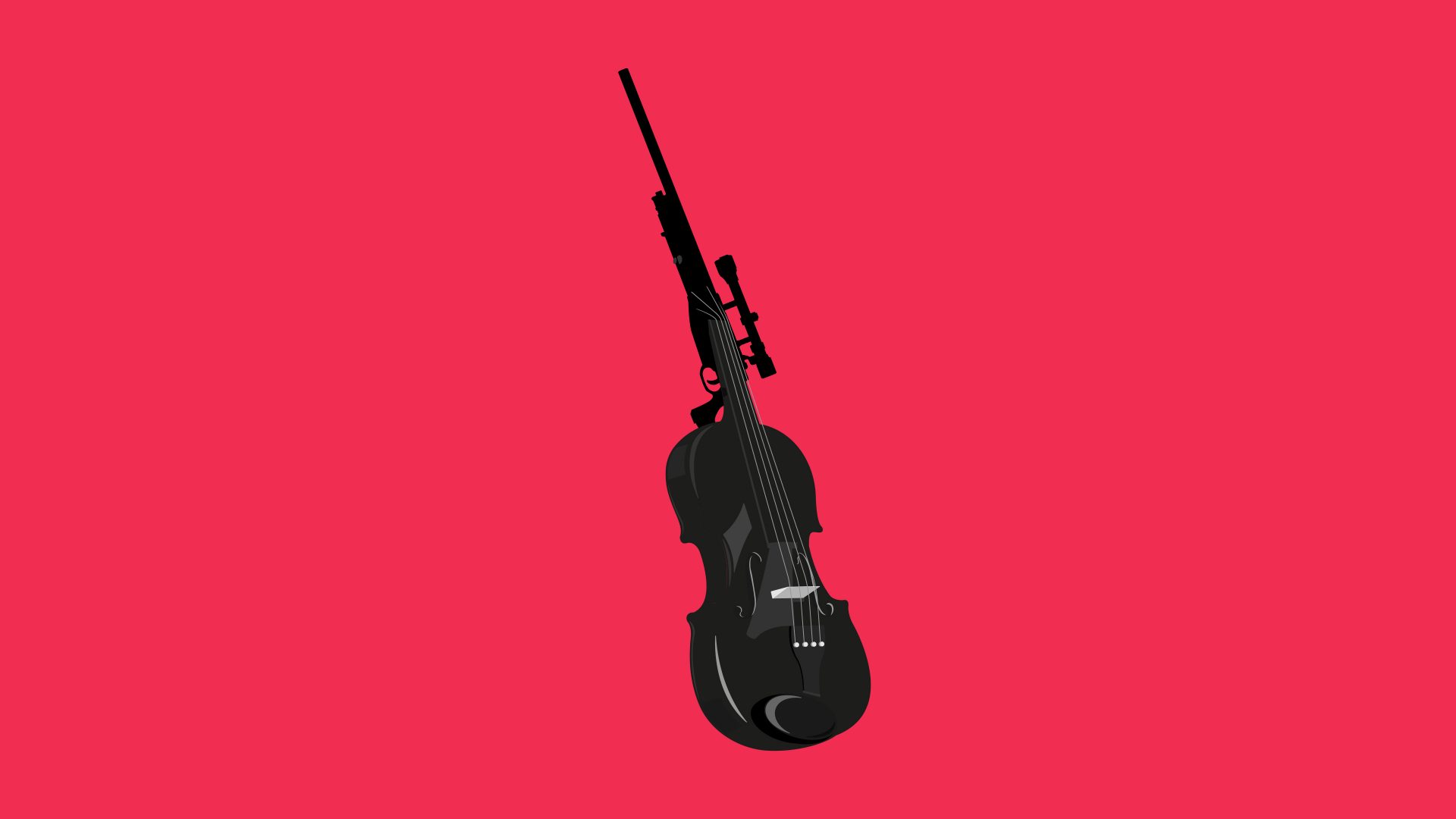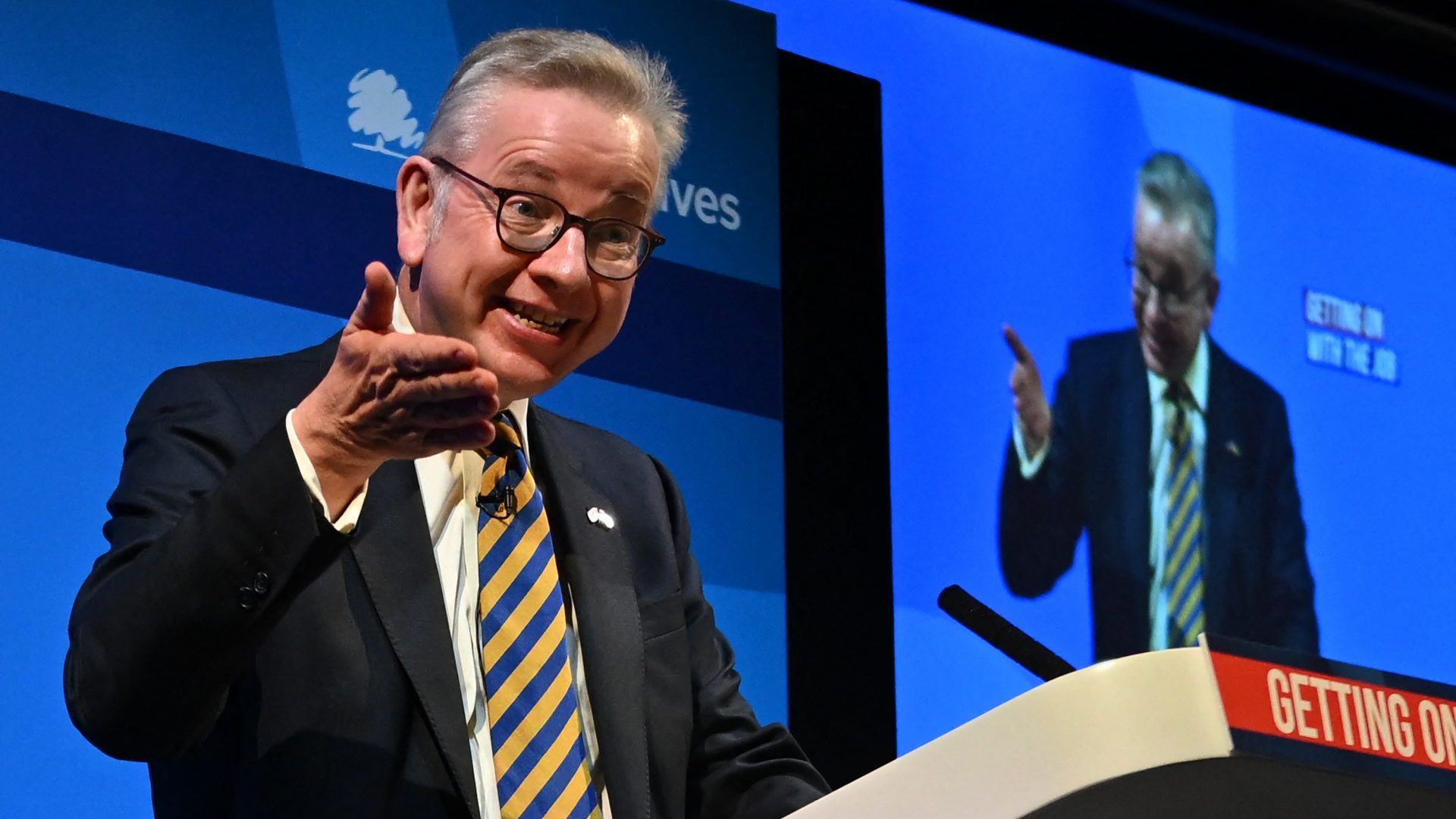“I’m in a combat post,” said the message. “I’ll be free in a day.” Somewhere in Kyiv, Oleksii Beregovyi was defending his country from Russian aggression. In his latest Facebook post, he posed proudly in army fatigues.
Yet he is more used to wielding a double bass than a rifle – Beregovyi is a member of the Kyiv-Classic Symphony Orchestra and earlier he had been involved in a different kind of resistance. As invading Russian troops closed in on Ukraine’s capital, he was performing in a morale-boosting concert in Kyiv’s Independence Square with musicians from his orchestra.
The war in Ukraine has displaced musicians from concert halls. Instrumentalists, folk singers, rock stars and ballet dancers have joined Beregovyi in the territorial defence forces. Opera singers pack sandbags while belting out tunes. As with every other Ukrainian, war has turned their lives upside down. But, when the missiles started to hit, they realised they had a powerful weapon to bring to the fight.
Soon after Russia invaded Ukraine on February 24, videos appeared of talented, sophisticated musicians making something beautiful out of despair. From “cellar violinist” Vera Lytovchenko performing in a dark underground shelter as shelling devastated Kharkhiv, to the Odessa State Opera singing a rousing rendition of Verdi’s Chorus of the Hebrew Slaves as Russian ships closed in on the historic Black Sea port, music has been the backdrop to some of the most haunting and compelling imagery of the war.
Shared around basement hideouts and rubble-strewn squares of the battered country, and through social media around the world, they touched the soul and galvanised resistance fighters as the world squares up to a vindictive Vladimir Putin and his murderous forces.
“We’re defending our families and friends, people we love. We will stand here until we die with all our weapons – and they’re not just guns but instruments, music, journalists’ work and art,” violinist Illia Bondarenko told me from a border mountain village, where he has brought his grandmother and sister to safety. “Music is a great power – without it you don’t have the whole picture.”
Although apparently spontaneous, Ukraine’s deployment of musical performance in this war is turning out to be a masterstroke of publicity as well as a focus for defiance, solidarity and comfort in the battle not only for territory but for hearts and minds. It shows that the peaceful power of the arts still matters and will survive long after the fighting stops.
The world responded with empathy. Ukraine’s national anthem has reverberated through concert halls in cities from New York to Paris, Amsterdam to Stockholm. Outside Downing Street, the Royal Opera’s Ukrainian baritone Yuriy Yurchuk sang a heartfelt version among protesters demanding a stronger response from the UK.
For Alexandra Zaitseva, manager of the Youth Symphony Orchestra of Ukraine, these performances provide a sense of purpose as she works to evacuate young musicians to safety: “It’s very important Ukrainians see their artists are still with them. That creative people haven’t just said goodbye and left for better opportunities.”
When Bondarenko – at 20 a successful musician with international performances, including at the White House, under his belt – wanted to add to the chorus, he couldn’t even hear himself play for the sound of explosions. Eventually, he found a long enough break in the attacks to record his own arrangement of the Ukrainian folk song Verbovaya Doshchechka. In the video, surrounded by pipes, insulation and shelves in a cramped basement shelter, some kind of household motor purring in the background, he makes his violin sing over the fragments of war. The shot pans out to reveal other players – from young Ukrainians to members of the London Symphony Orchestra – until 94 musicians from 25 countries are united in this performance of solidarity organised by the British violinist Kerenza Peacock.
Bondarenko had tried to enlist when the invasion started, but recruiters wanted military experience. Like many other musicians who took up auxiliary work such as first aid and supplies, he turned his attention elsewhere. But after Peacock’s call, he realised he could harness his music. “Our music inspires people who live here and keeps the attention of people outside Ukraine,” he explained. He plans to return to Kyiv to help with the struggle – and regain access to his piano so he can compose music that speaks to this war.
It’s not surprising that Ukrainian music is seeping into war, as Europe’s wars have often seeped into its classical music. It may be global now, but it’s a deeply European tradition intricately entwined with the continent’s history. Verdi’s operas reflect the turbulence of Italy’s Risorgimento; Beethoven dedicated his Eroica symphony to Napoleon as hero of the people – a dedication he violently rescinded when Bonaparte crowned himself Emperor. Second world war stories include the 1940 Proms defiantly continuing after artists and audiences were trapped in the Albert Hall by the Blitz, Messiaen composing his Quartet for the End of Time as a German prisoner of war, and Francis Poulenc and Pierre Bernac using texts by a Nazi-banned communist poet in song recitals in occupied Paris.
A recent German, Swedish and Ukrainian project on “forbidden music” sought to highlight those suppressed under totalitarianism, including Ukrainian-born composers Vsevolod Zaderatsky and Borys Kudryk, both sent to Soviet gulags for their anti-communist views.
Some of the videos made now in Ukraine carry echoes of this history – most touchingly, a recording of 48-year-old Irina Maniukina playing Chopin on an ash-covered grand piano amid the rubble of her bomb-ruined house. This elicited comparisons between the player and the composer, whose short life of sadness, tragedy and exile was practically the embodiment of Europe in conflict.
“Particularly poignant that Irina played Chopin, who left his homeland, Poland, as it (with Lithuanians & Ukrainians) rebelled against & was then crushed by the Russian empire,” tweeted British composer Howard Goodall, referring to the 1830-31 Polish-Russian war. Chopin, implored by friends to stay abroad and use his music to give voice to Poland’s struggle, would cry while playing his piano at night.
Filmed by her daughter Karina, Maniukina lifts the piano cover, brushes the dust and ashes from the keys, and launches into Chopin’s Aeolian Harp Étude as the camera shows the wreckage of their home – furniture covered in soil from shattered plant pots, amputated doors and windows on the floor and cables jutting from shattered walls. Not a “sad moment”, said Karina, but a way to remember good times. Her mother played because, for a moment, she “wanted to forget about the war and her worries for our safety”.
It’s reminiscent of a stirring scene from the Oscar-winning The Pianist, based on the second world war memoirs of Władysław Szpilman. The Polish-Jewish pianist is discovered hiding in the ruins of Warsaw – looking horribly like burned-out buildings in Ukraine today – by a German officer who asks him to play. The malnourished Szpilman, his frozen fingers slowly unfurling, plays Ballade No 1 in G minor by Chopin to the clearly emotional soldier, who hides him from his fellow Nazis.
The most affecting videos aren’t always professional. The unexpected beauty of seven-year-old Amelia Anisovych performing Let it Go from the Disney film Frozen, in a shelter full of families, reduced many to tears, including the men. Crying babies, lulled by the song, fell silent. Actress and singer Idina Menzel, who made the song famous in the role of Elsa, wrote to the young girl who dreams of singing on “the grand stage”: “We see you. We really, really see you.”
Ukraine had a growing scene for young classical musicians, with several music schools, conservatories (including Kyiv’s Tchaikovsky National Music Academy) and, since 2017, the youth orchestra, founded by the celebrated Oksana Lyniv – the first female conductor to take the stage at Germany’s 145-year-old Bayreuth opera festival.
Now they must abandon all this and leave their homes, evacuated over the past two weeks by train via Hungary to Ljubljana, following an invitation from the director of Slovenia’s youth orchestra. They’re offered refuge – first in hotels, later with families – and a music camp with tuition, ensemble work and, eventually, full orchestral performances. With men aged 18 and above barred from leaving Ukraine and others having escaped already, the organisers filled the gaps by inviting talented pre-teen musicians, their siblings and mothers.
The camp is also a psychological refuge. Kristina Kmit, who still vividly remembers her father waking her at 5am on the morning the war started, can only now pick up her violin again. “We were shocked and panicked. I couldn’t play any more – not physically, but emotionally,” she tells me from Ljubljana. “But when I came here I could play this beautiful music.”
The emotional impact worries Galina Korinets, whom I met three years ago when she led a pan-Caucasian “peace” youth orchestra in Georgia. Now living in Tel Aviv, she’s still traumatised by rocket attacks, jumping at every passing motorbike and seeking out basement shelters everywhere she goes. “Here a three-year-old child knows how to run to a bomb shelter, but Ukraine isn’t a country which knows about war,” she tells me from her Israeli home. “It terrifies me to think of them.”
Korinets says a 29-year-old musician she studied with has died, her body found late the night before. A good friend hasn’t made contact for 10 days. She begged her parents, a retired political adviser and a violin teacher, to leave the country. They wouldn’t even leave Kyiv until an air strike near their house, making a painfully slow journey to the border, avoiding main roads clogged up with Russian tanks, skirting around bridges blown up to hinder the Russians. They took a suitcase, a few family pictures, Galina’s cat, one of their 12 violins, and music by Bach and Paganini.
Desperate to help, like much of Ukraine’s musical diaspora, Korinets organises fundraising concerts, humanitarian aid and chat groups for musicians looking for missing family, new homes or help with documents. She’s also hosting refugees.
Creative communities across the world have offered to help musicians replace broken or abandoned instruments – cellos and tubas don’t fit on crowded trains – and access advanced study. “Music academies are offering entry for Ukrainian students without exams as well as free study and accommodation,” Zaitseva told me, clearly touched. “These are great opportunities, but as culture workers we also understand what this means for Ukraine.”
By “this”, she means a possible brain drain if exiled musicians stay away. But worse would be if they couldn’t learn at all, says Lyniv.
“Young Ukrainian musicians, pupils of music schools and music colleges, are the basis for the whole future of Ukrainian musical culture, we must keep them learning and playing,” she tells me. As the war destroys their conservatoires – and prospects – playing music becomes more significant: “A precious thread that unites them with their past, their teachers, their schools, their mates – their Ukraine!”
But other international links are destroyed. Ukrainian musicians say some erstwhile Russian friends deny the invasion and complain about cancelled concerts and losing Ikea instead of denouncing Russian aggression – or at least emulating the Spanish cellist Pablo Casals, who refused to play in protest at the Spanish civil war and loss of democracy.
Korinets’s Russian former flatmate, whose trumpeter boyfriend is pro-Putin, won’t speak to her, and she has cut off others.
A week later, I finally catch Beregovyi, exhausted after protecting a humanitarian facility round the clock. No combat so far, “but we detained one saboteur and two marauders”, he says. He has also organised aid deliveries, unloaded 15 tonnes of potatoes from trucks, and helped in kitchens.
The physical exertion and lack of sleep is tough, he says, but “I can handle combat missions”. Worse is the fear of what might come next, “of danger, of sirens and explosions in the distance, fear only for family and friends…” His wife is four weeks pregnant and won’t leave Kyiv without him. His 75-year-old parents are also there. “It scares me that there’s no pity.”
After years of coronavirus-linked cancellations, Beregovyi had been dreaming of his forthcoming concert with the Ukrainian National Opera and German soloist Matthias Goerne. Instead, he played under siege in Kyiv’s Maidan Square.
A vital mission, he explained, “to convey to the whole world we are not Nazis and degenerates, but a nation with deep roots and high culture”.
To help Oleksii Beregovyi and his team visit www.facebook.com/bereg.basso




